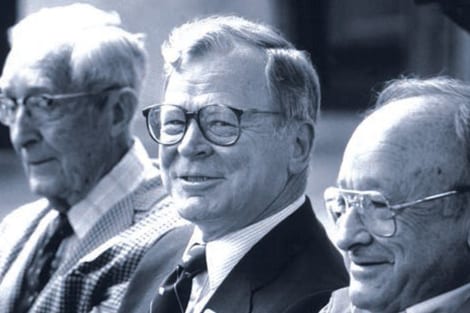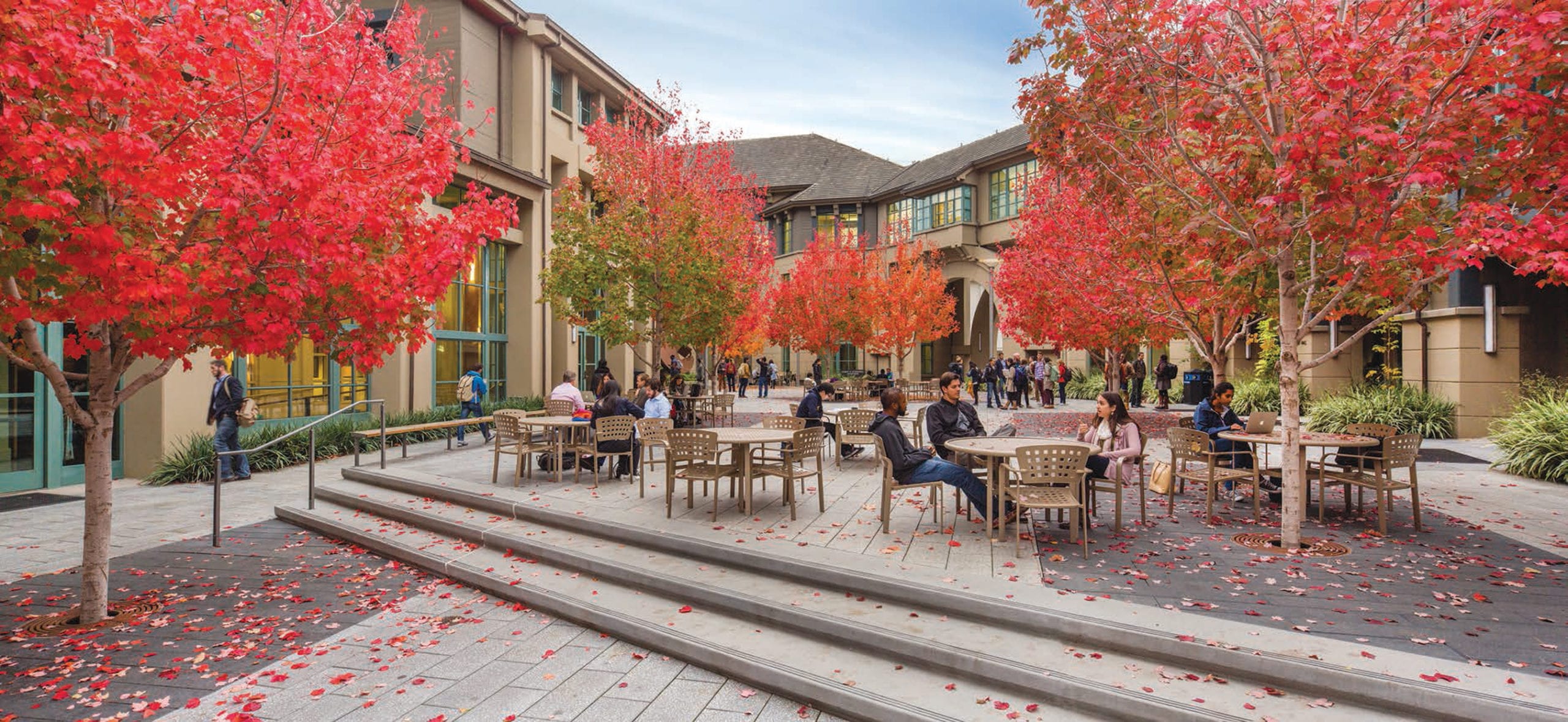It’s been 120 years since Cora Jane Flood made her bequest of securities and real estate that founded business education at the University of California in 1898. At the time it was the largest private gift to the university ever. “Jennie” Flood’s establishment of the “College of Commerce” endowed professorships in economics, accounting, and insurance. That donation made our school the second oldest business school in the United States—and the only one founded by a woman.
In the case of Berkeley Haas, the old adage is true: The more things change, the more they stay the same. Even though the Defining Leadership Principles were codified just eight years ago, earmarks of our culture have defined the essence of business education at Berkeley since our founding. Presented here, a handful of moments showcasing the longevity of Berkeley Haas’ distinctive character.
Question the Status Quo: Redefining Business Education
Of the 65,500 business school grads in 1949, only 6 percent took graduate degrees. Why? Some business schools were little more than secretarial training, while Berkeley’s undergrad curriculum surpassed many graduate programs. But did our education best serve the business community and the country?
Dean E.T. Grether, who believed that merely teaching case studies failed to educate students in broader theoretical frameworks, traveled to Harvard and Carnegie Mellon to evaluate their curricula. The intensely rigorous scholarly path instituted at Berkeley meant challenging assumptions, not just mastering skills. By the end of the 1950s, the business school’s grad students were asking the hardest questions in their field—a practice that won them respect from their university colleagues in the other social sciences. World-class research and a stimulating intellectual environment have been a part of graduate business studies at Berkeley Haas ever since.
Confidence Without Attitude: Advising Government
Berkeley Haas has a long history of providing data-driven advice to state and national governments. It started in the 1930s, when Dean E.T. Grether lent his expertise of markets and pricing structures amid the Great Depression’s wave of business regulations and Dean Henry Francis Grady helped President Franklin D. Roosevelt develop the program of reciprocal trade agreements. Dean Richard Holton served as assistant secretary for economic affairs in the U.S. Department of Commerce in the ’60s.
In the ’80s and ’90s, Profs. Michael Katz, Jonathan Leonard, David Levine, Carl Shapiro, and James Wilcox all helped guide economic policy at the national level. Interim Dean Laura D’Andrea Tyson was the first woman to serve as top economic advisor to a president when she led Bill Clinton’s National Economic Council, among other posts.
Prof. Severin Borenstein and his colleagues at the Energy Institute at Haas have positioned Haas as the go-to source for energy economics research that affects California and the nation. And of course Prof. Emeritus Janet Yellen, with a long history of public service, was most recently head of the Federal Reserve from 2014 to 2018.

Students Always: Founding Entrepreneurship Courses
By the late 1960s, innovative Berkeley grads were creating companies that smashed the staid models and caught public interest like wildfire. The school responded in 1970 by offering a course in Entrepreneurship and Business Development—one of the first such courses in the country at a time when peer institutions still emphasized preparation for Fortune 500 company jobs.
Berkeley’s entrepreneurship emphasis was prescient as the California-born computer revolution would soon change the culture forever. Today, Haas is a vital part of a campuswide entrepreneurial ecosystem that includes accelerator programs, mentoring, coursework, student competitions, seed funding, space, and networking opportunities.
Beyond Yourself: Pioneering Social Impact
In 1964, our school held “The Summit at Berkeley,” a gathering of 30 economists and historians from various universities presenting ideas about the social and political environment of business. Future Dean Earl F. Cheit compiled presenters’ essays into a book, The Business Establishment, and so ushered in the study of corporate social responsibility and the social impact of business.
Soon after, Berkeley offered coursework in the field that addressed the larger context in which business operated and became the model for other leading business schools.
Today, the summit’s legacy can be seen in the Institute for Business & Social Impact, a hub for Haas’ efforts—including centers and programs, courses, case competitions, conferences, speakers, and experiential learning and leadership opportunities—to prepare students to become ethical, socially focused leaders intent on finding creative business solutions for the world’s most pressing problems.
Read Sandra Epstein’s in-depth history of Berkeley Haas.
